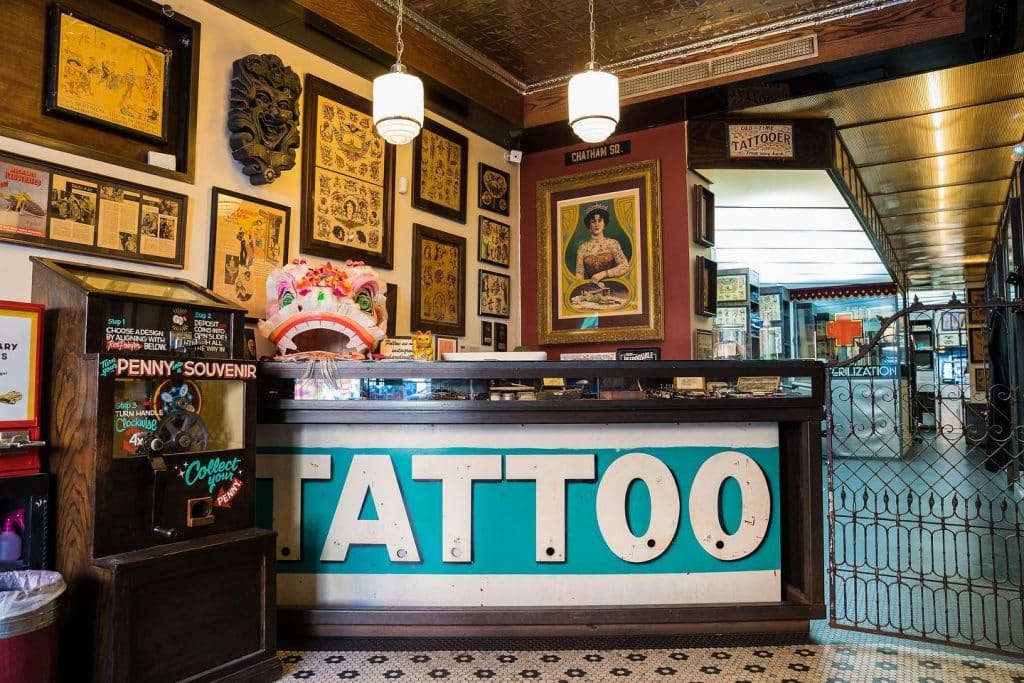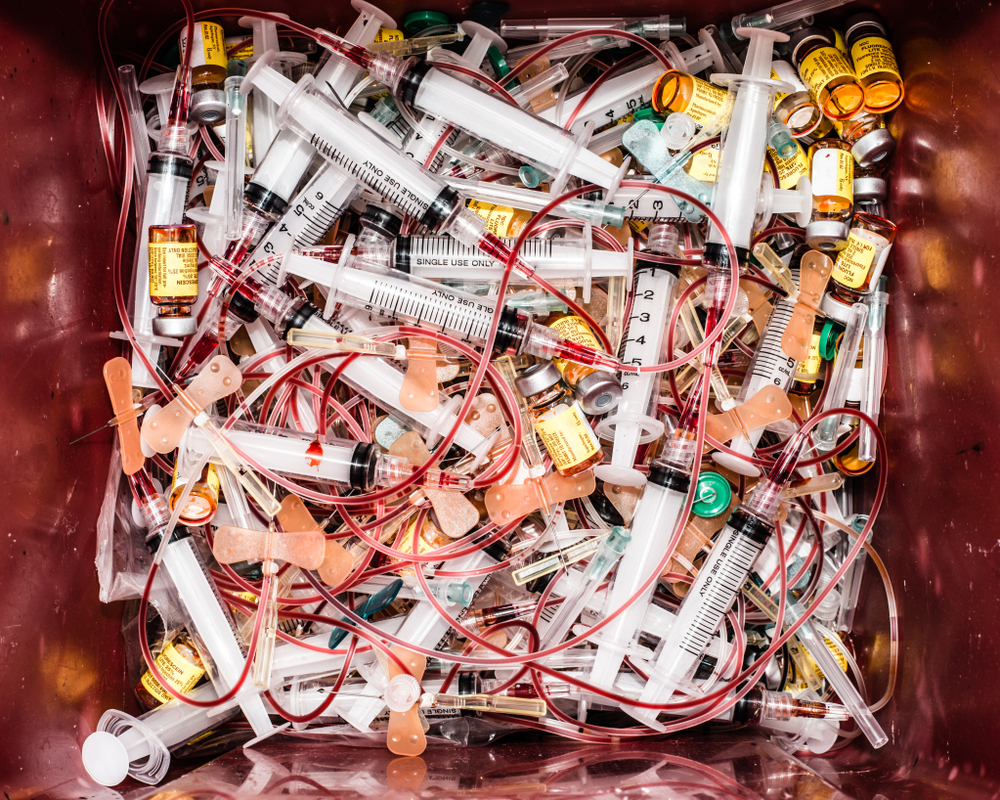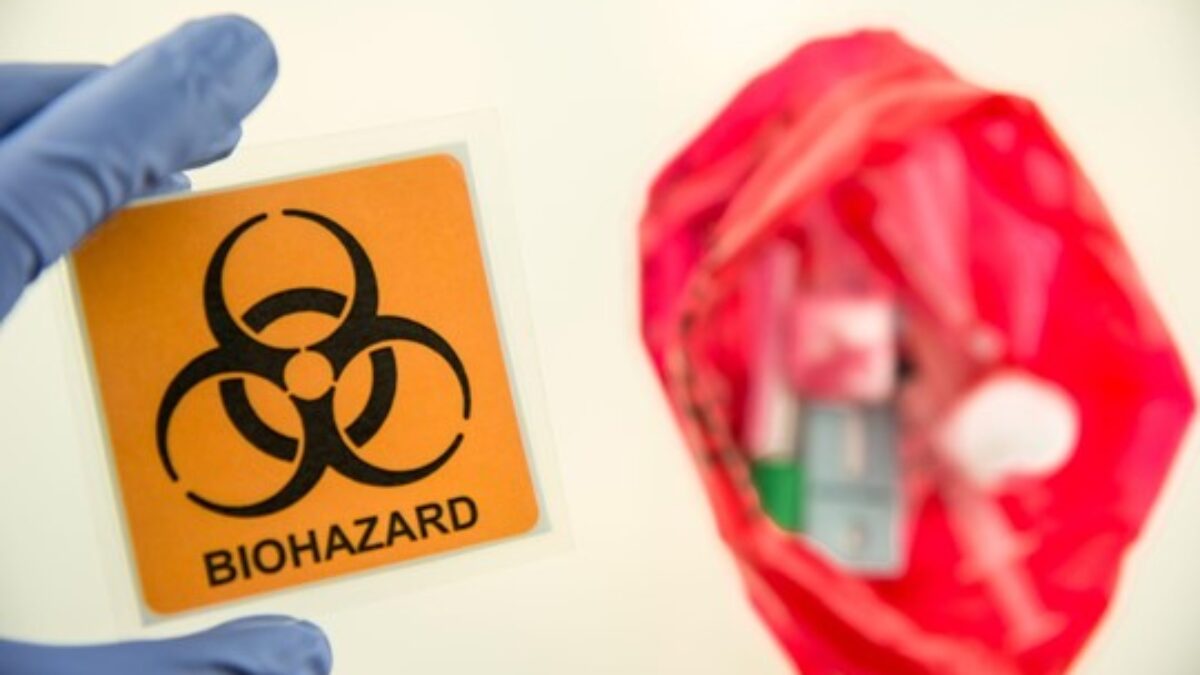Understanding Medical Waste And Its Disposal In Tattoo Parlors
Every tattoo session leaves behind used needles, ink caps, gloves, and wipes.
These materials, if not handled properly, can carry bloodborne pathogens such as hepatitis or HIV, which threaten clients and put tattoo artists at risk of accidental needle-stick injuries. Additionally, the leftover ink and biological residue can also encourage bacterial growth on tools and surfaces, compromising the cleanliness of the entire studio.
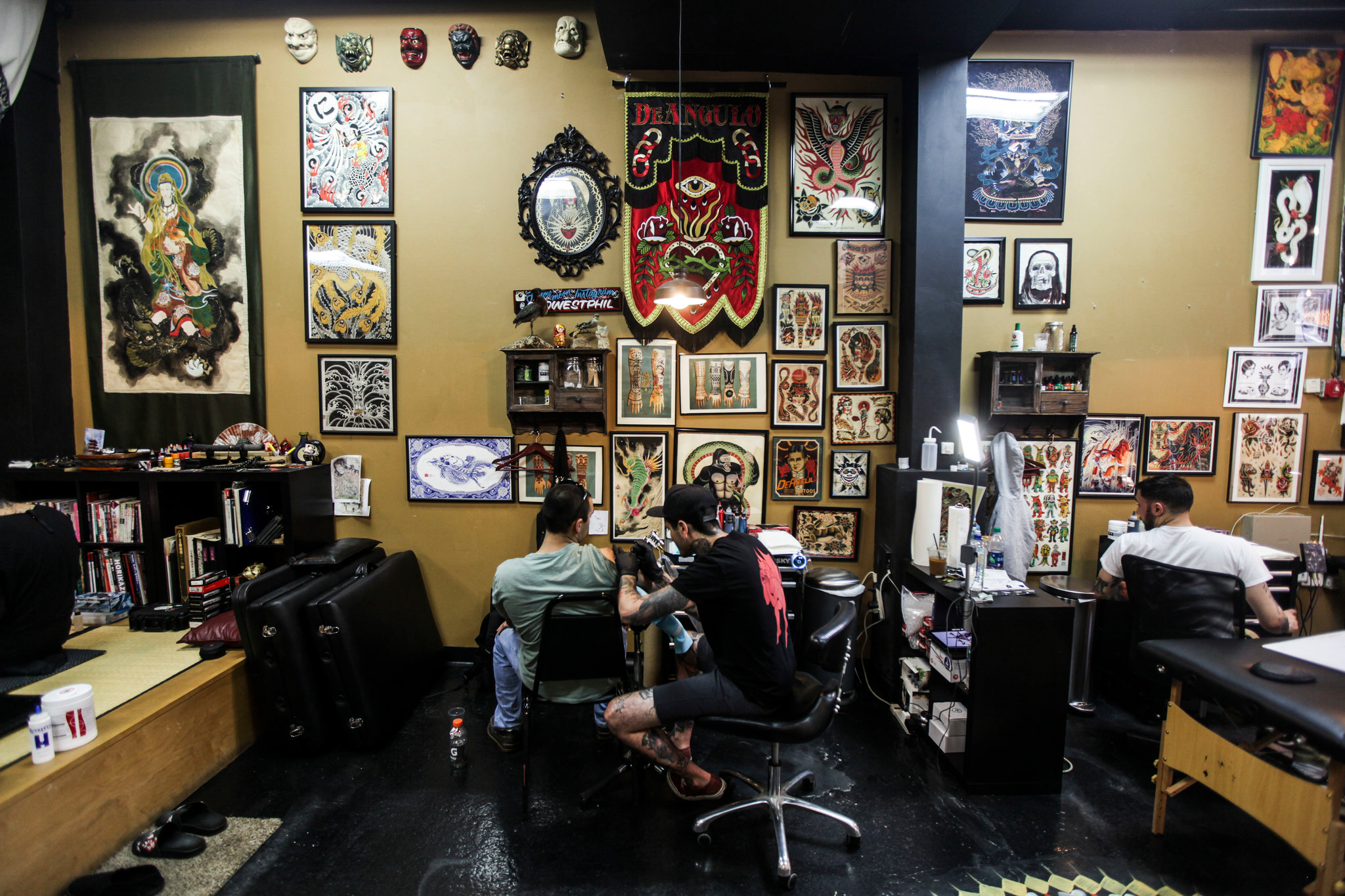
Due to this, proper medical waste disposal is crucial for tattoo parlors. This involves recognizing hazardous items, carefully separating and storing them, and following approved disposal procedures to maintain a safe and hygienic environment throughout the studio. So, continue reading this blog to understand how, but before that, let’s learn about the types of tattoo parlor waste.
Types Of Tattoo Parlor Waste
Tattoo parlors generate the following waste types during their daily operations, each with different characteristics and potential hazards:
- Sharp Waste: Needles, blades, and tattoo machine tips are classified as sharp waste. They are generated continuously during tattooing sessions.
- Infectious Waste: Gloves, gauze, and tissues soaked in blood or body fluids are considered infectious waste due to their potential to carry pathogens.
- Chemical Waste: Tattoo inks, pigments, disinfectants, and cleaning solvents produce chemical waste. These substances are reactive and can hurt the environment.
- Plastic Waste: Single-use ink caps, cups, glove packaging, and plastic barriers form a significant portion of plastic waste in parlors.
- Liquid Waste: Leftover ink, rinse water from machines, and cleaning solutions contribute to liquid waste that may contain chemical or organic residues.
- Metal Waste: Worn-out tattoo machine components, clips, springs, and grips generate metal waste, which is distinct from other non-biodegradable items.
- Textile Waste: Used towels, cotton pads, and protective fabrics carry biological material, categorizing them as textile or absorbent waste.
Risks Of Improper Waste Disposal
Cross-Contamination Hazards
Improper disposal of contaminated materials, such as needles, gloves, ink caps, and swabs, allows for contact with residual blood or plasma, leading to cross-contamination and an increased risk of spreading infectious diseases like Hepatitis B, Hepatitis C, and HIV among clients, staff, and waste handlers.
Injury From Sharp Waste
Disposed needles or razors left in regular bins can cause accidental punctures, leading to exposure to infected blood.
Environmental Pollution
Chemicals from tattoo inks, cleaning agents, and contaminated fluids can leach into soil and water sources, causing long-term environmental harm and ecosystem disruption.
Air And Odor Contamination
Decomposing organic waste, such as blood-soaked materials, can release unpleasant odors and airborne bacteria, thereby increasing the risk of respiratory irritation and infection.
Legal And Financial Risks
Non-compliance with biomedical waste disposal regulations can result in legal action, substantial fines, or the permanent closure of the tattoo parlor.
Regulatory Compliance For Tattoo Parlors
Here are the regulatory compliance requirements for tattoo parlors:
- Tattoo parlors must identify and dispose of medical waste, including needles, ink-contaminated wipes, gloves, and any materials contaminated with blood or bodily fluids.
- Sharps disposal requires puncture-resistant, leak-proof containers labeled with the universal biohazard symbol to meet OSHA and local health regulations.
- Segregation of infectious waste from general waste is mandatory to prevent contamination and comply with state biomedical waste rules.
- Use of single-use instruments and proper medical waste disposal reduces the risk of disease transmission and aligns with infection control standards.
- Parlor staff must complete formal training in medical waste handling, including storage, labeling, and emergency procedures for spills or exposure.
- Temporary storage areas must be secured, ventilated, and clearly marked as biohazard zones until collection.
- Partnering with a medical waste disposal company ensures disposal meets EPA, CDC, and local health authority guidelines.
- Maintaining records of waste generation, collection, and biohazard medical waste disposal is legally required for inspections and audits.
- Regular internal compliance audits and updates on regulatory changes prevent violations and safeguard client health.
Best Practices For Tattoo Parlor Waste Disposal
Segregate Waste Immediately
All materials must be sorted at the point of use. Sharps, gloves, wipes, and ink-stained items must be placed into distinct containers to prevent cross-contamination and simplify safe medical waste disposal.
Dispose Of Biohazardous Materials Safely
Gloves, paper towels, gauze, and other items contaminated with blood or bodily fluids should be placed in red biohazard bags. Bags must be sealed and stored securely until collected by a certified medical waste disposal service.
Handle Tattoo Ink And Chemical Waste Properly
Unused ink, rinse solutions, and sterilizing chemicals must be stored in dedicated containers for chemical waste. Please don’t pour liquids into sinks or drains; coordinate disposal with licensed hazardous waste contractors.
Use Approved Sharps Containers
Discard needles, blades, and other sharp instruments into rigid, puncture-resistant, labeled sharps boxes immediately after use. Ensure medical waste disposal containers are never overfilled and replaced when they reach the fill line.
Sterilize Reusable Tools Effectively
Metal grips, tubes, and instruments must go through autoclave sterilization after every client. You can also maintain a logbook of sterilization cycles for compliance and quality assurance.
Implement Disposable Equipment Protocols
Single-use grips, tubes, and ink caps must be used only once per client. After use, immediately discard into biohazard containers to prevent infection risks.
Maintain A Dedicated Waste Storage Area
Store all waste in a separate, ventilated, and lockable area. Keep sharps, biohazard, and chemical waste separated and labeled to reduce exposure risks and maintain hygiene.
Document Disposal And Sterilization
Could you keep detailed records of sharps disposal, chemical collection, and sterilization cycles? Documentation ensures regulatory compliance and allows for monitoring of proper waste management practices.
Spill Response Preparedness
Keep spill kits with absorbents, disinfectants, and PPE readily available. Please keep and clean spills of ink, blood, or chemicals, and dispose of contaminated materials in the appropriate containers.
Conduct Regular Waste Audits
Check container integrity, labeling, storage, and adherence to protocols on a weekly or monthly basis. Identify lapses and correct them immediately to maintain safety and compliance.
Emergency Exposure Protocols
Have clear procedures for needle sticks, chemical exposure, or blood contact. Include immediate first aid, reporting, and follow-up with medical professionals to prevent infections and legal liability.
How Secure Waste Supports Tattoo Parlors?
At Secure Waste, we understand the challenges tattoo parlors face in managing biohazardous and medical waste. That’s why we provide specialized medical waste disposal services for a variety of tattoo-related waste, including medical sharps, regulated biohazard materials, tattoo piercing needles, tattoo gun covers, and razors. Our trained team is backed by an elite fleet of trucks and advanced real-time tracking systems, which deliver reliable service every time. We also actively monitor the waste generated by your studio and tailor pickup schedules to fit your practice’s workflow, ensuring minimal interruption to appointments.
Partnering with us ensures your waste is handled safely and in full compliance with local and federal regulations, protecting both your staff and clients from potential risks. Additionally, with us, you can also enjoy no-contract service options and transparent, competitive pricing tailored to your specific waste volumes and pickup frequency. So, request a free waste assessment today and experience dependable biomedical waste management and medical waste disposal in Maryland, Virginia, and Washington, D.C.
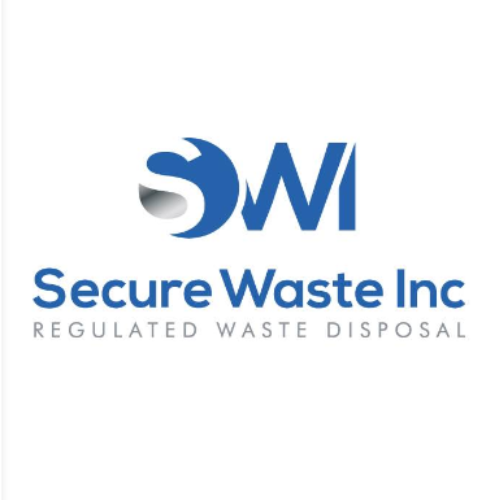
Expert Medical Waste Management: With over 25 years of industry experience, Secure Waste is a trusted local leader in hazardous and biohazardous waste disposal across Maryland, Virginia, and Washington, D.C. Specializing in medical waste management, sharps needle disposal, and biohazard waste removal, the company ensures full compliance with federal, state, and local regulations while prioritizing environmental sustainability.
The company also offers additional services, including secure document shredding and sharps container sales, providing comprehensive solutions for healthcare facilities and businesses. Our cost-effective services help clients maintain regulatory compliance without unexpected costs.
With a commitment to customer satisfaction, Secure Waste offers tailored waste management plans that align with industry best practices. Their team of experts provides reliable, timely, and compliant services, making them the preferred choice for medical waste disposal. For a free waste quote or more information, visit www.securewaste.net
